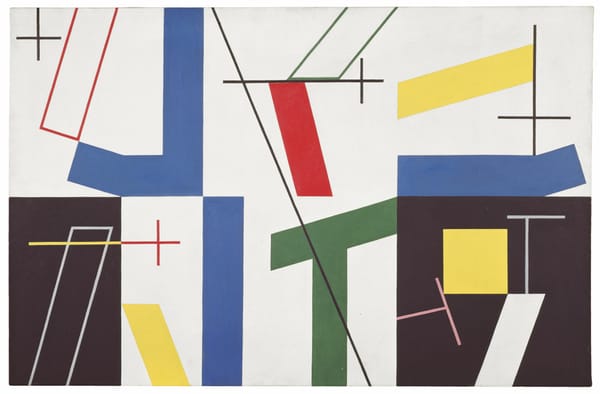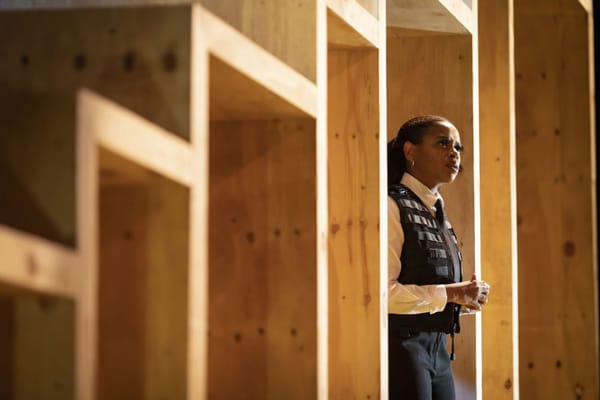Paradise: A Tragedy
A modern retelling of Sophocles’s Philoctetes, Kae Tempest's new play at the National Theatre delights and disappoints in equal measure.
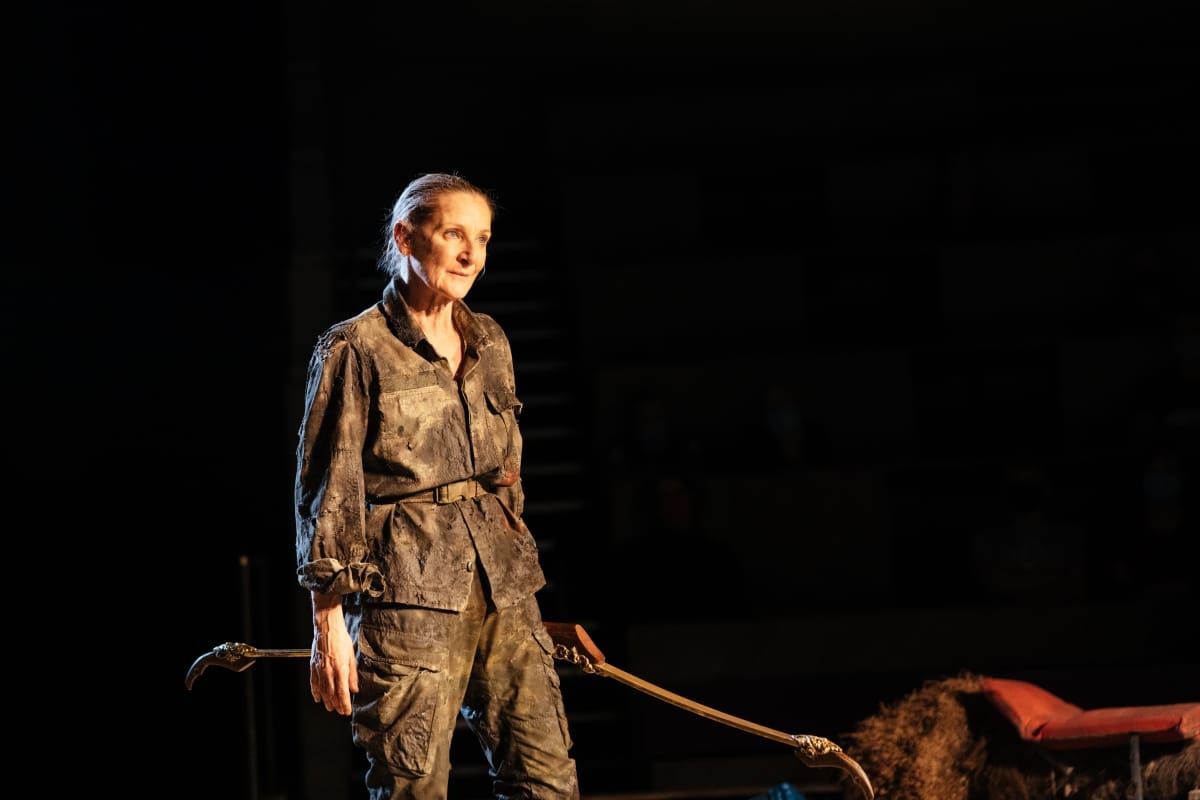
Paradise
★★
- What: Play
- Where: National Theatre
- When: Until 11th September, 2021
- Cost: £10
Both the National Theatre’s venues are now fully reopen and its largest, the Olivier, is kicking off with Paradise: a contemporary retelling of the Greek tragedy Philoctetes. Penned by the acclaimed poet, rapper, and playwright, Kae Tempest, Paradise is a showcase of their remarkable way with words and unfortunate continuing struggle with narrative, when it comes to playwriting. The eponymous protagonist (Philoctetes) is played by the formidable Lesley Sharp, who is joined by Gloria Obianyo (Neoptolemus) and Anastasia Hille (Odysseus) in the main cast, and an all-female chorus that form a small island community. This show is teeming with potential but, for me, fails to deliver on some of the fundamental aspects of a theatrical show: where is the drama!?
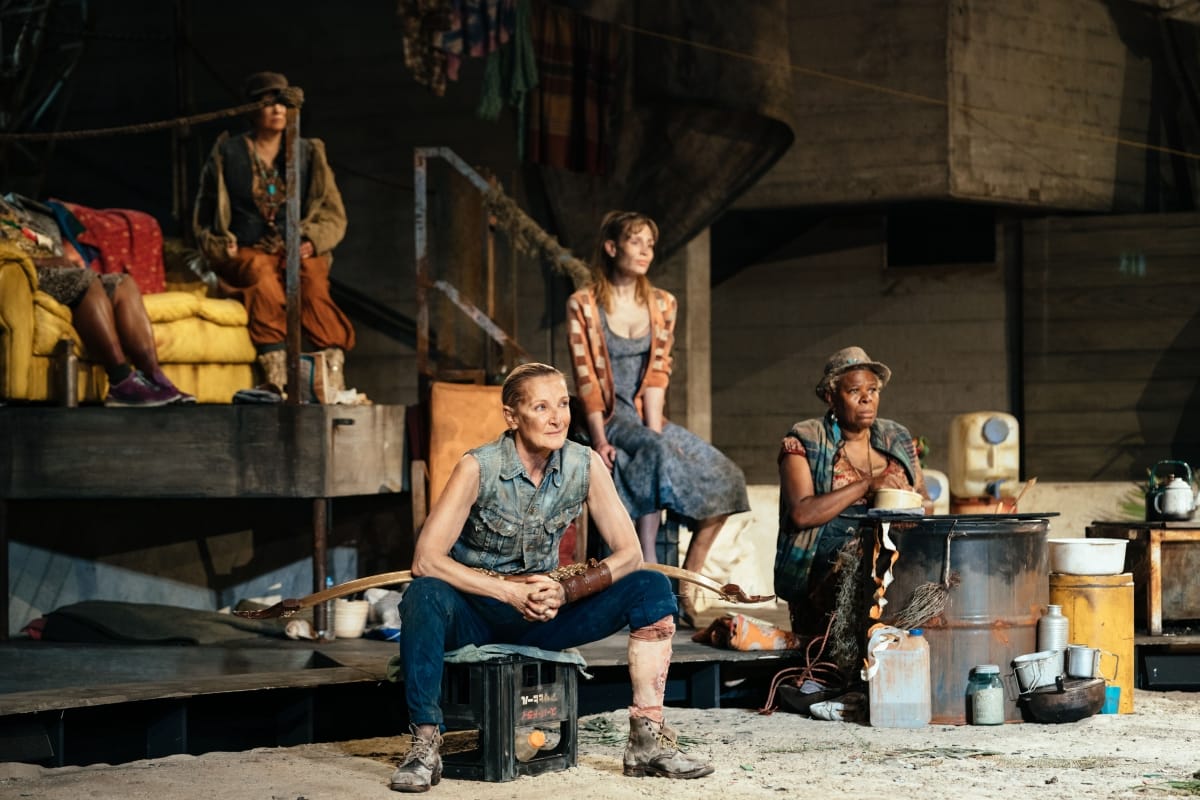
In this modern interpretation of a Greek myth, Philoctetes is an abandoned soldier living the life of a refugee. Having been left by his general Odysseus years prior, he desperately clings to his fabled Bow of Hercules, that he now uses to hunt rats and whatever else he can kill. Sharp’s portrayal speaks with a rough cockney accent and lives in a cave, barely managing the pain from his grotesquely infected leg. Enter Neoptolemus, sent by Odysseus, to trick Philoctetes into rejoining the war effort. Obianyo and Hille give solid performances in their respective roles, but Sharp exuberates much higher energy and somehow manages to deliver a profound critique of society, democracy, and war through a haze of chaotic and paranoid delirium. Given this obvious talent on stage, it was painfully disappointing to find that, ultimately, no clear sense of character motivation emerged from the narrative.
There is a wisdom and clarity in the poetry and prose that seamlessly relates the ancient myth with our current times.
Make no mistake, this was not a failure of the cast. Hille as Odysseus was an authoritative and balancing presence, embracing the behaviour of a morally ambiguous general, and Obianyo conveyed an innocence and a hunger for glory suitable for Neoptolemus. For most of the play we see Philoctetes, wounded and disturbed, ramp up with excitement before collapsing in anxiety, repeatedly — what I was missing was something concrete to latch on to. Neoptolemus goes from moral uncertainty to beating and urinating on a wounded man at the drop of a hat, and a spontaneous love interest for Philoctetes materialises out of nowhere in the final scene. These plot points were exaggerated and jarring and, far from bringing any catharsis, immediately dissipated any tension built up from the rather lacklustre dialogue.
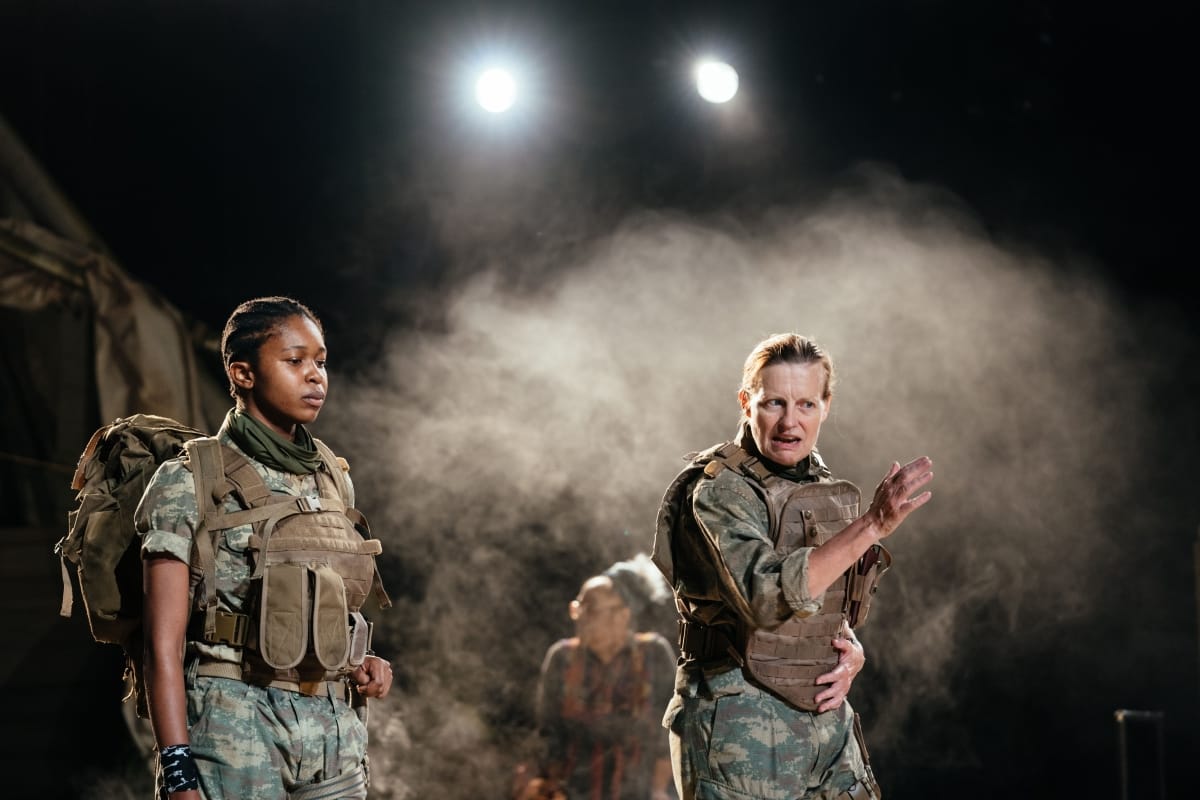
There is no doubt that this is a truly contemporary and innovative retelling of a classic legend; there is a wisdom and clarity in the poetry and prose that seamlessly relates the ancient myth with our current times. Tempest casually constructs a rich imagery through the musical free verse sung by the prophetic Aunty (ESKA). The language is strikingly familiar in both time and tone. But then, a long predictable Starbucks joke, a cheap quip about pizza; these incongruent and, frankly, cheesy moments stole from the show in spades. For me, it is very disappointing: the differences between Tempest’s retelling and the original are devised in a subtle and sophisticated way — they open curious new avenues of interpretation and exploration. For a play that had so much potential, I wish I could have felt the tension more.
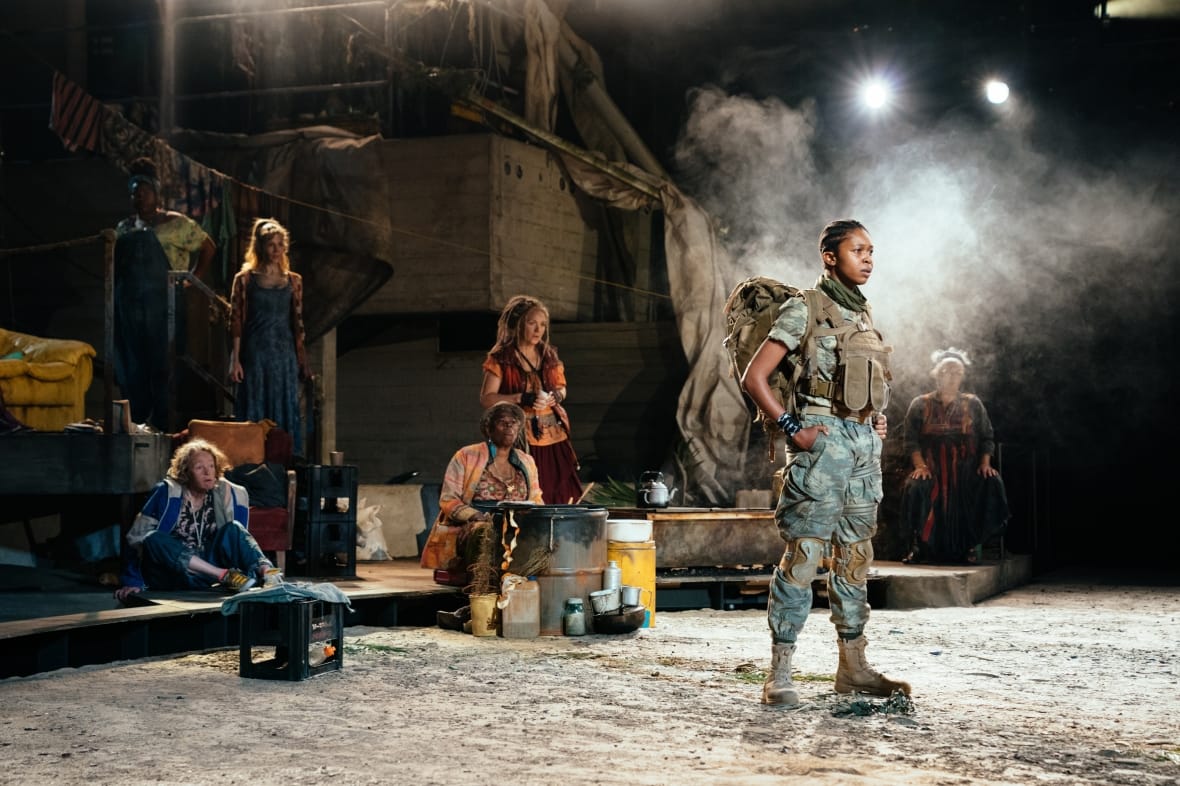
So, what to make of it? I cannot in good conscience tell you I would go and see this play again. Paradise successfully experiments with changes to both form and language but there were other elements that consistently felt off. Kae Tempest is clearly a phenomenal poet and wordsmith and, whilst I did not love this play, it sparked an excitement to see what they will bring to the world of theatre next. Paradise is open until the 11th of September in the Olivier Theatre at the National. I won’t see you there, but I’ll definitely catch you at the next one.


